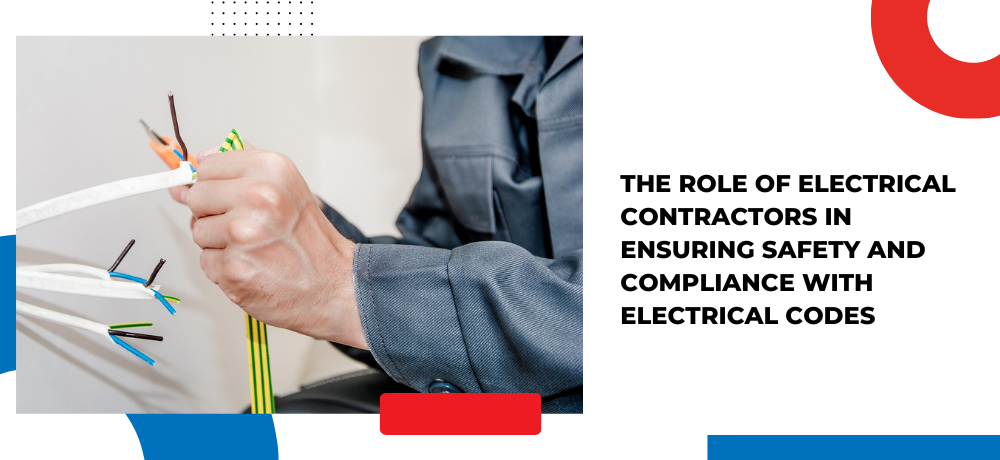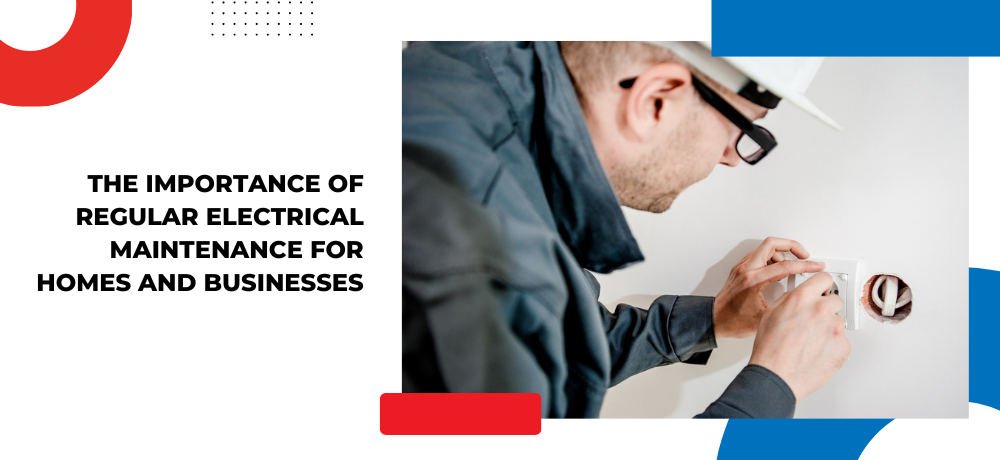Electrical systems are the backbone of modern homes and businesses, powering everything from lights and appliances to complex machinery. However, with the growing reliance on electricity comes an increased risk of electrical hazards, making safety and compliance with electrical codes a top priority. This is where electrical contractors play a crucial role. They ensure that electrical systems are installed, maintained, and upgraded in a way that adheres to safety standards and regulatory codes. Below, we explore the vital role electrical contractors play in ensuring safety and compliance with electrical codes.
1. Understanding and Applying Electrical Codes
Electrical codes, such as the National Electrical Code (NEC) in the United States or local codes in various regions, are a set of regulations that guide the installation and maintenance of electrical systems. These codes are designed to minimize the risk of electrical fires, electrocution, and other hazards by ensuring that installations are done correctly and safely. Electrical contractors are highly trained professionals who are not only familiar with these codes but also ensure that any electrical work they perform is compliant with these standards.
Key Responsibilities:
- Staying updated with the latest versions of local and national electrical codes.
- Applying the right standards when designing, installing, or upgrading electrical systems.
- Ensuring compliance during inspections by local authorities.
2. Ensuring Safe and Secure Installations
A significant aspect of an electrical contractor’s job is to ensure that electrical installations are safe and functional. Proper installation of electrical wiring, outlets, switches, and appliances is critical to preventing electrical accidents. Electrical contractors follow detailed guidelines to ensure that installations meet safety standards.
Safety Measures Include:
- Proper grounding of electrical systems to prevent electric shocks.
- Correctly sizing wires and circuit breakers to prevent overloads and fires.
- Installing systems that protect against short circuits, surges, and other hazards.
- Ensuring that electrical panels are properly sealed and accessible.
3. Preventing Electrical Hazards and Failures
Electrical systems that are not properly installed or maintained can result in numerous hazards such as electrical fires, shocks, and power surges. An electrical contractor’s responsibility extends beyond installation to regular maintenance and troubleshooting, helping prevent potential failures that could jeopardize safety.
Safety Practices:
- Routine inspections of electrical systems to identify potential risks.
- Troubleshooting faulty wiring or malfunctioning electrical components.
- Replacing outdated or damaged components to ensure reliable operation.
4. Ensuring Code Compliance in Renovations and Upgrades
When homes or businesses undergo renovations or upgrades, electrical systems must be updated to meet current electrical codes. Electrical contractors are essential during these processes, as they ensure that any new work is integrated safely into the existing system and complies with all relevant codes.
Key Considerations:
- Upgrading wiring, outlets, and switches to meet new code requirements.
- Ensuring that newly installed systems are compatible with older ones.
- Bringing outdated electrical systems up to modern safety standards.
5. Dealing with Local Regulations and Permits
In many jurisdictions, electrical work requires permits and inspections to ensure compliance with local regulations. Electrical contractors are not only knowledgeable about these requirements but are often responsible for securing necessary permits, scheduling inspections, and ensuring that the work passes all inspections. This process is vital to making sure that electrical systems are safe and up to code.
What Electrical Contractors Do:
- Apply for necessary permits for electrical work.
- Coordinate and schedule inspections by local authorities.
- Make required corrections if work does not meet code during inspections.
6. Education and Guidance for Homeowners and Businesses
Electrical contractors also serve as valuable resources for homeowners and businesses. They educate clients about proper electrical safety and help them understand the importance of compliance with electrical codes. This guidance is especially crucial for those looking to perform DIY electrical work or who are unaware of potential safety risks.
Education Topics May Include:
- Proper use and maintenance of electrical systems and appliances.
- How to recognize warning signs of electrical issues.
- The importance of hiring licensed electrical contractors for electrical work.
7. Providing Emergency Services
In the event of an electrical emergency, such as power outages, short circuits, or electrical fires, electrical contractors are often called upon to quickly respond and resolve the issue. Their knowledge of electrical systems and safety standards allows them to handle these emergencies with precision, ensuring minimal risk to property and life.
Emergency Services:
- Diagnosing and repairing emergency electrical issues.
- Restoring power and fixing electrical faults as quickly as possible.
- Providing temporary safety measures while awaiting full repairs.
8. Long-Term Compliance and Sustainability
Electrical contractors play a critical role in ensuring that electrical systems are not only safe and functional but also energy-efficient and sustainable. By adhering to modern codes, such as those focused on energy efficiency, contractors can help homeowners and businesses reduce energy consumption, which is an important factor in both safety and cost savings.
Sustainability Practices:
- Installing energy-efficient lighting and appliances.
- Designing electrical systems that minimize energy wastage.
- Ensuring that electrical systems are built to last, reducing the need for frequent repairs and replacements.
9. Ensuring Protection from Electrical Fires
Electrical fires are a serious concern, often caused by faulty wiring, outdated equipment, or improper installations. Electrical contractors are trained to assess and address these risks. By ensuring systems are correctly installed, they help prevent fires that could result from faulty electrical work.
Fire Prevention Steps:
- Installing smoke detectors and fire alarms connected to electrical systems.
- Using high-quality, fire-resistant wiring and components.
- Regularly inspecting and maintaining electrical systems to prevent potential fire hazards.
Conclusion
Electrical contractors play a pivotal role in ensuring safety and compliance with electrical codes, protecting lives, property, and businesses from the dangers of electrical hazards. Their expertise in installing, maintaining, and upgrading electrical systems according to code not only reduces risks but also promotes long-term safety, sustainability, and efficiency. By hiring a licensed and experienced electrical contractor, homeowners and businesses can rest assured that their electrical systems are up to code, reducing the chances of accidents and ensuring peace of mind. Whether it’s for new installations, renovations, or ongoing maintenance, working with a professional contractor is key to maintaining a safe, reliable, and compliant electrical system.



